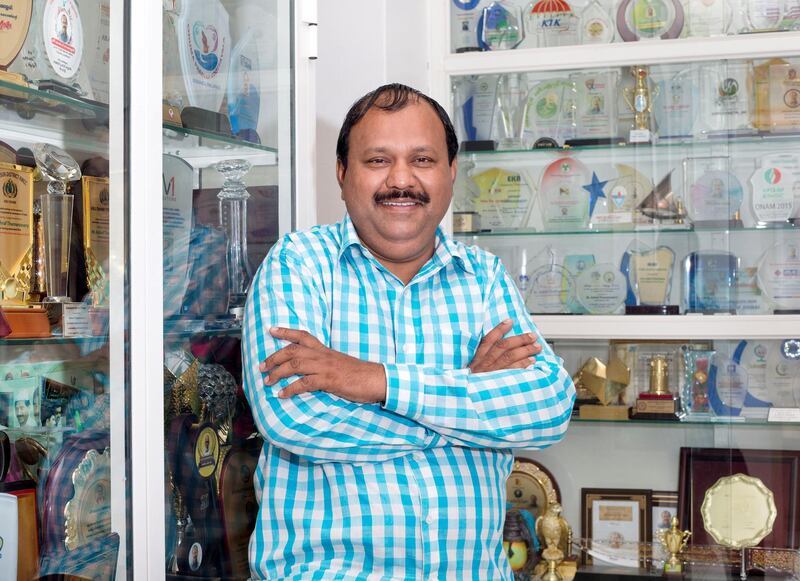Ashraf Thamarassery’s phone rarely stops ringing as he accepts yet another call from someone who has lost a loved one and needs his help returning their body home.
He helps them fill out the necessary forms and apply for clearance to repatriate the body to grief-stricken relatives.
Very little changes in terms of work hours during Ramadan for the Indian national but he is grateful to be able to pray for longer intervals during the holy month.
"Before Ramadan or during Ramadan, it's always busy. On regular days I don't get any time to eat when I'm working, I only eat with my family at 11pm. But the good thing is that this month I can read the Quran more. Also during Ramadan, I break roza (fast) with the police and customs officers because they all know me," said Mr Thamarassery, better known as Ashraf bhai or brother.
On a normal day he travels between different emirates sorting out permissions needed from police, hospitals and the mortuary.
“The difference during Ramadan is that I can’t drink water so towards the evening my throat becomes dry because I have to keep talking to people. But it’s not difficult once you get past the first few days,” he said.
When Mr Thamarassery moved to the UAE in 1999, he set up a garage and auto repair shop in Ajman.
A year later after assisting two labourers unaware of the procedure to send their father’s body to India, he realised that dozens of workers struggled to negotiate the paperwork.
He still runs the car repair shop with his brother but focuses on philanthropic work.
“I never take fees from anyone. I just help them out. I have sent bodies back to families in India, Bangladesh, Sri Lanka, Nepal and also to the US, UK, Europe and African countries,” he said.
Over the past 18 years he has helped repatriate more than 4,700 bodies to 38 nations from labourers weighed down by debt, wealthy industrialists and recently Bollywood movie star Sridevi.
Mr Thamarassery’s phone rang off the hook in February as people called multiple times daily to check on the documents delaying the release of Sridevi’s body from the mortuary.
“There is a process that needs to be followed and nothing can change that so until we had all the papers, it could not leave here,” he said.
The Bollywood star died on February 24 in Dubai after a family wedding in the UAE. Police said she drowned in a hotel bathtub after losing consciousness and termed her death accidental.
“It does not really matter whether the person is famous or not. In the end everyone grieves the same way. The family just want to take the body home. They want the body with them in their own country whether it is a poor person or a rich businessman,” said Mr Thamarassery, who lives in a flat in Ajman filled with awards and certificates honouring him for his philanthropy.
_______________
Read more:
Ramadan teaches us all how to be tolerant
Sridevi's body and family land in India ahead of funeral after death in Dubai
President Khalifa pardons almost 1,000 prisoners ahead of Ramadan
_______________
In some cases, he has accompanied coffins home when the family lives in a remote village without the means to arrange for transport. Indian community members often chip in to take care of the expenses for embalming and transport.
“The wife and children cry until the body reaches. Once it reaches home, they are relieved and my load lessens too,” he said.
Mr Thamarassery prefers not to dwell on the sadness that he encounters daily. The sorrow on the faces of mourners gathered in groups outside the hospital and mortuary does not drain him.
He lives by a simple logic that this is his duty. The focus on prayer and helping the needy is what he looks forward to during Ramadan.
“I see death every day, but I can’t always worry about what I’m seeing. Ramadan is a time I think about a lot of things, about life,” he said.
“I just want to make a difficult time easier for people.”






